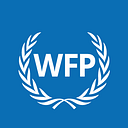Menghestab Haile: “Evaluation can create government buy-in”
In a recent interview, WFP’s Regional Director in Southern Africa, Menghestab Haile, highlighted joint evaluations’ critical role in creating accountability, capacity and ownership at the country level, and shared more about the importance of involving women and youth in evaluation.
This year, OEV will present three Country Strategic Plan Evaluations from RBJ to the WFP executive board. What is the relevance of CSPEs for country offices and the region?
It’s important to mention that Country Strategic Plans are a mechanism that helps us partner with Government. It’s about supporting government priorities in terms of food security, nutrition and achieving Zero Hunger.
If we don’t evaluate, or assess the strategic impacts, and demonstrate this impact to Government, it becomes a challenging process.
It is important to do evaluations on our projects, so that we have continued buy-in from governments. Evaluation, in effect, becomes a tool to support Government.
In your view and experience, what have been some influential decentralized evaluations in the region and why do you say so?
Through the growing decentralized evaluation function at the regional bureau, WFP has supported the governments of Eswatini, Lesotho and Namibia in joint school feeding evaluations.
Joint evaluations are influential because often governments have challenges knowing the exact results of their programmes. When, as a region, we work together with them on joint evaluations, firstly, there is transparency: they see what we are doing.
Secondly, there is skills transfer: they learn and develop the know-how to use the methods and evaluation techniques in their own programmes.
Thirdly, there is ownership. Governments need to claim ownership of a programme, but to claim ownership they want to know that it is a good project. So, joint evaluations help from different angles: it creates transparency, capacity and ownership at country level.
The region will continue to focus on this work. The SADC region has several academically capable universities, so know-how is not an issue. Governments in the region may have strong ministries, but they require expertise in specialised areas, such as evaluation. By doing joint evaluations, we are sharing our experience and helping to build more sustainable systems for their programmes.
The larger impact is significant. When you compare WFP’s intervention in a country to the country’s overall budget, the WFP contribution may be small. But if governments learn how to do a better evaluation from the work that we do with them, then the implication and impact on other programmes are much bigger.
One of the offices in your region has recently been awarded an Evaluation Excellence Award for gender mainstreaming in an evaluation. Why is this so important?
Our region was delighted to receive an Evaluation Excellence Award in December 2022 for the Malawi country office’s Food Assistance for Assets evaluation.
Women are often the most impacted by food security issues in the region. Women are small-holder farmers; in every aspect they are heavily and negatively impacted by climate change.
When we are doing evaluation, and if we have integrated women into the process, it means that we are addressing the poverty of the majority. The vulnerability of the biggest section of society — which is the women, the mothers, the wives — they have been considered. This evaluation makes me very proud of the team, and the country office.
If you have a good project or programme, it becomes a beacon for other countries. There are several other countries that can learn from the Malawi evaluation. We will exchange this best practice at a forthcoming leadership meeting, where the Malawi country office can share its experience with other country directors, and encourage countries to do the same.
The region has invested significantly in young and emerging evaluators — what is the status of this programme, and why is this work relevant in the bigger 2030 picture?
Involving young people in WFP is critical — not just for evaluation but for the organization overall. It’s our obligation to bring on board the younger generation and give them proper training and opportunities.
The regional bureau has launched a work immersion programme for emerging evaluators in 2021 with great results. For evaluation it becomes important because we are often evaluating government programmes. You need locally-trained, locally-grown young people to build confidence.
The region has great universities and many capable graduates, so it’s important to make use of that and create opportunities for them to ensure continuity, sustainability and ownership. In the end, the hope is that these graduates could support their governments to do evaluation, and when WFP is no longer in the picture, the evaluators will still be there to support their governments.
In the same vein, we also need to keep our finger on the pulse of what technology is doing: the old ways of data collection have greatly improved. Building on up-to-date, modern technology, we can do better evaluation, better outreach and better decision-making. It’s important that we modernise our thinking about data use, and the accessibility of data.
